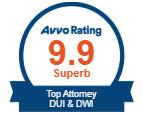 In the state of Florida, the sentencing judge has the option to place an individual on a period of probation, regardless of whether the charge is a misdemeanor orfelony. The probation period for a misdemeanor charge can be no longer than one (1) year. Probation for a felony charge can last several years, depending on the specific charge. Misdemeanor probation is supervised by the Pinellas County Sheriff’s Office and felony probation is supervised by the Florida Department of Corrections.
In the state of Florida, the sentencing judge has the option to place an individual on a period of probation, regardless of whether the charge is a misdemeanor orfelony. The probation period for a misdemeanor charge can be no longer than one (1) year. Probation for a felony charge can last several years, depending on the specific charge. Misdemeanor probation is supervised by the Pinellas County Sheriff’s Office and felony probation is supervised by the Florida Department of Corrections.
As conditions of probation, the Defendant is required to maintain a stable residence, be gainfully employed, refrain from the use of drugs and other intoxicants, and not commit new criminal offenses. Additionally, the sentencing judge may, depending on the case, impose specific conditions which include drug testing, curfews, drug and alcohol counseling and restitution to any named victims.
In the event of a violation of misdemeanor probation, the Court will issue a summons for the probationer to appear in Court to answer the violation. In felony cases, the probation officer will file a violation report with the Judge stating how probation was violated along with an affidavit (sworn statement) detailing the violations(s). The probation officer will request that an arrest warrant be issued and the officer will request that the probationer be held in county jail at “No Bond” status. A judge will review the bond status and is permitted to release a person or set a bond. Understand that there is no legal right to bond on a Violation of Probation. If bond granted and posted with the jail, a person can be free pending resolution of the probation violation. While bond may be granted, that decision is entirely within the Court’s discretion.
There is no right to a jury trial in a violation of probation case. If the case can not be resolved through discussions with the State Attorney and/or the presiding judge, an “Evidentiary Hearing” is scheduled before the judge at which time the Judge will make the sole determination if a willful violation of probation occurred.
The most important thing to remember about probation is that you are not in control of probation, the probation officer or the conditions of probation … the probation officer is in charge. Be respectful of and in contact with your probation officer at all times. The better your relationship is with the probation officer, the better your chances are of surviving probation without a violation.
If you find yourself facing a violation of probation, make sure you have good representation. The attorney you choose can be the difference between a reinstatement of probation and a possible jail or prison sentence.





